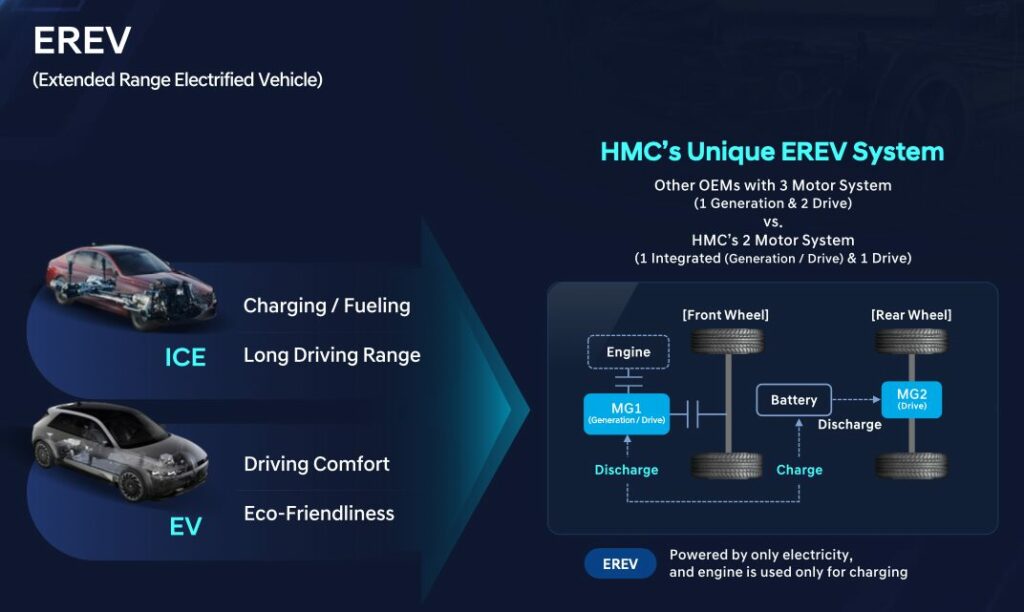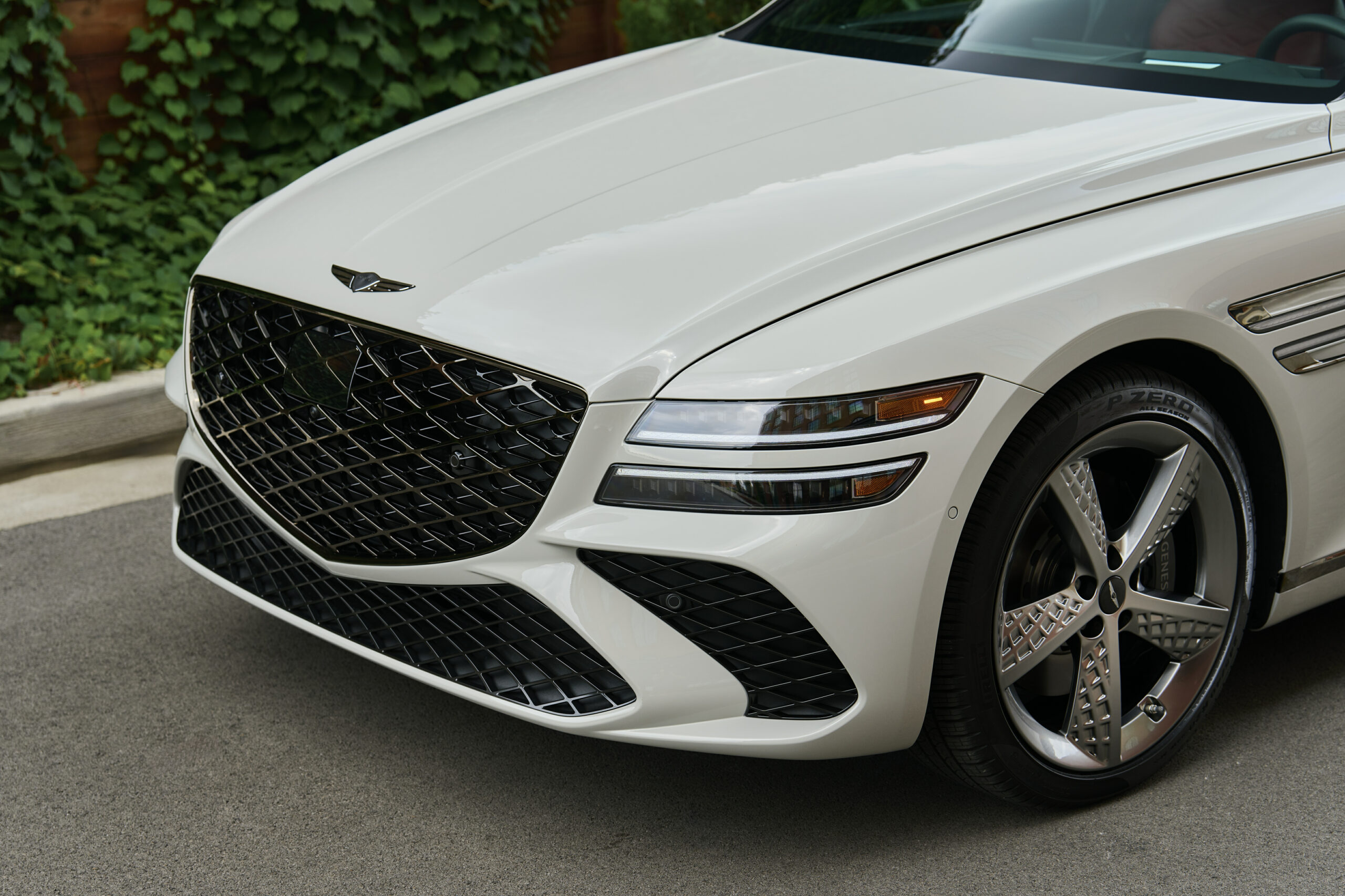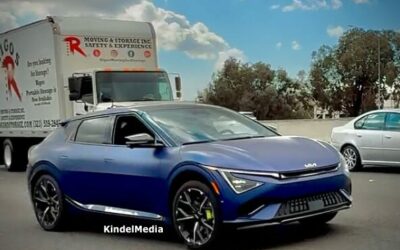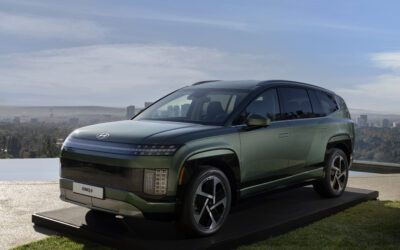Starting in 2027, Genesis will introduce hybrid versions across all its vehicle lines. This marks a departure from the company’s 2021 announcement, where it stated that it would skip hybrids and focus exclusively on electric and hydrogen-powered vehicles starting in 2025. Until now, Hyundai has only produced and sold hybrid versions under its main brand, including models like the Grandeur and Santa Fe. However, in response to evolving market dynamics, Hyundai has decided to prioritize hybrid technology across almost all vehicle models.
Strategic Shift in Response to Market Dynamics
Hyundai’s decision to emphasize hybrids comes as part of a broader strategy to navigate the “EV chasm”, a period of temporary demand slowdown for electric vehicles (EVs). By enhancing its hybrid lineup, Hyundai aims to offer a bridge for consumers between internal combustion engines and fully electric vehicles, ensuring continued sales momentum even if the transition to EVs takes longer than anticipated.
At the “2024 CEO Investor Day” held on August 28th at the Conrad Seoul Hotel, Hyundai’s CEO Jang Jae-hoon outlined the company’s mid-to-long-term strategy, known as the “Hyundai Way.” In addition to expanding its hybrid offerings, Hyundai announced plans to introduce an “Extended Range Electric Vehicle” (EREV) by 2027 in the U.S. and China. This vehicle, while primarily electric, features a small gasoline engine that acts as a generator, allowing it to travel up to 900 km on a single charge.
Expanding Hybrid Offerings Globally
Currently, Hyundai offers seven hybrid models under its main brand, including popular choices like the Avante, Sonata, and Grandeur. The company plans to double this number to 14 by adding hybrid versions of Genesis models, such as the G80 sedan and the GV70 and GV80 SUVs. However, the all-electric GV60 and the upcoming GV90 will remain exclusively electric.
The expansion of Genesis hybrids is expected to intensify competition with luxury hybrid models like those from Lexus, particularly in key markets like the United States. Despite Genesis’s rapid growth in the global luxury car market, the absence of hybrid options has been a noted weakness. The introduction of hybrids is anticipated to address this gap, bolstering Genesis’s competitive edge.
Introducing New Technologies in Upcoming Models
In addition to expanding its hybrid lineup, Hyundai plans to enhance the features of its hybrid vehicles, starting with the upcoming Palisade hybrid, set for release early next year. This model will include the V2L (Vehicle to Load) functionality, currently available only in EVs, which allows the vehicle to power external electronic devices—a feature highly sought after for outdoor activities like camping.
Hyundai’s shift towards hybrid technology comes as the global automotive market increasingly favors hybrids for their eco-friendliness and convenience. While electric vehicles face challenges such as charging infrastructure and higher costs compared to traditional internal combustion engine vehicles, hybrids offer a more accessible alternative for environmentally conscious consumers.

New EREV Technology for Overseas Markets
Hyundai’s new EREV model, targeting markets like the U.S. and China, represents another significant innovation. By incorporating a small engine to recharge the battery, this vehicle can travel up to 900 km on a single charge, addressing one of the main concerns consumers have with current EVs—limited range.
The EREV is expected to be priced more competitively than pure electric vehicles, which currently cost 30-40% more than equivalent internal combustion engine vehicles after subsidies. Hyundai plans to price the EREV similarly to plug-in hybrids, which are typically around 20% more expensive than conventional hybrids.
Long-Term Commitment to Electric Vehicle Development
Despite the current slowdown in EV demand, Hyundai remains committed to its long-term goal of selling 2 million EVs globally by 2030, with an overall sales target of 5.55 million vehicles, including Genesis models. The company also plans to return more than 35% of its annual net profit to shareholders through dividends and stock buybacks over the next three years.
To support these initiatives, Hyundai has committed to investing 120.5 trillion won (approximately $100 billion) over the next decade. CEO Jang Jae-hoon emphasized that the “Hyundai Way” strategy is designed to secure sustainable leadership in an uncertain market environment, highlighting the company’s flexible approach to market changes.
This shift reflects Hyundai’s strategic adaptability and commitment to leading the global automotive market through innovation and a balanced approach to technology adoption.






